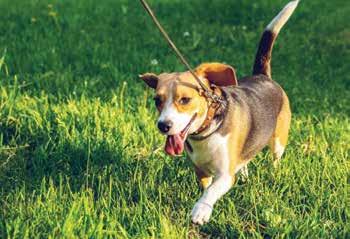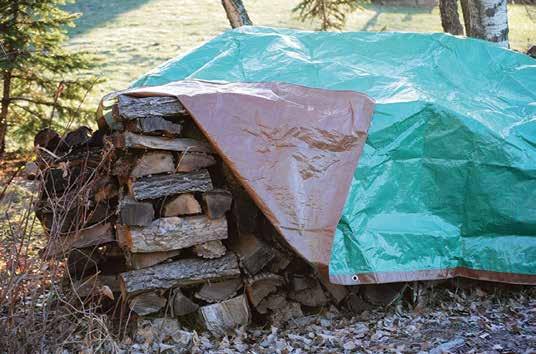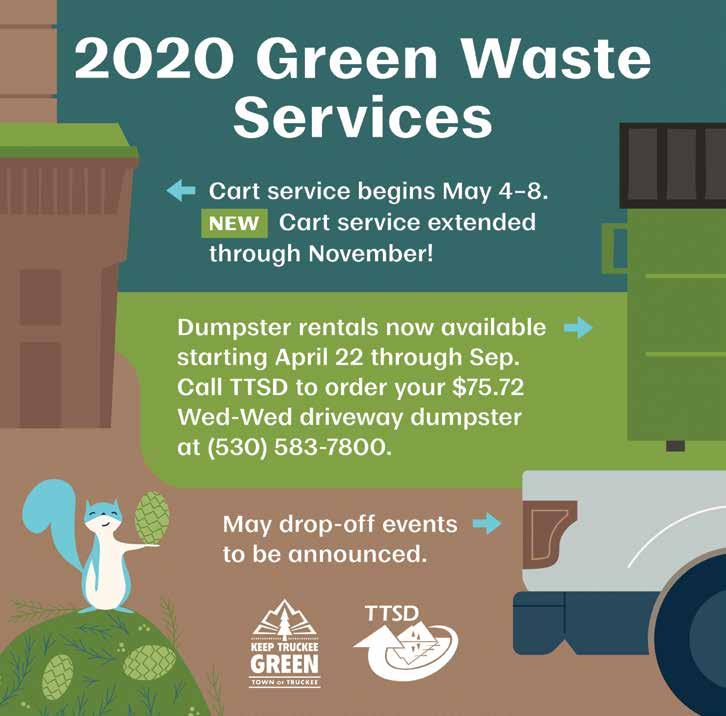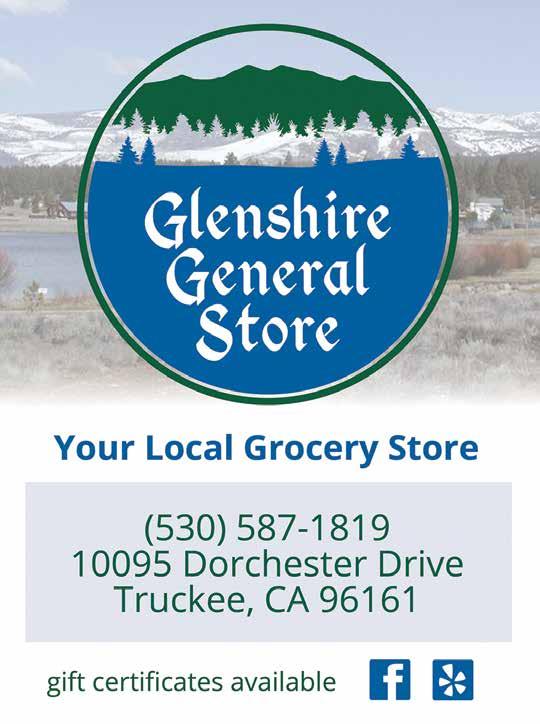
12 minute read
10 ways you can be a great gdra member
GDRA Good Neighbor “
“10 ways to be a great Glenshire Devonshire Member!
Advertisement
1. Pick Up Pet Waste
At All Times
Pet waste is a main polluter of the Glenshire Lake, which flows into the Truckee River
Many streams and drainages flow to the Glenshire Lake, so picking up pet waste on and off trails is important
2. Use Dark Sky
Exterior Lighting
Dark skies are one of the reasons many of us live in the mountains and not a city
Town of Truckee and Glenshire have Dark Sky ordinances Studies have shown that bright lights are harmful to wildlife, effecting feeding, mating and more
Visit www.darksky.org for more information
3. Keep Control of Pets
Pets chasing wildlife can be very detrimental, especially during nesting and fawning seasons
Keep dogs from roaming and respect use of leashes for their safety and the safety of others We requests dogs not go on the Glenshire Lake island
4. No RV Living
Pursuant to GDRA rules and regulations
5. Contact GDRA Office For Exterior Improvement
Approvals
Most exterior improvements require GDRA approval, including but not limited to: Painting / Windows / Sheds / Fences / Additions / Parking Areas / Tree Removal Some improvements require a Design Review Committee approval, others staff approval
6. Maintain Defensible Space
Defensible space on every property matters toward increasing fire safety for the entire region Find helpful information at https://www. truckeefire.org/defensible-space
7. Responsible Use of
Dumpsters, Bins and Carts
Please contact GDRA staff if you need to use the clubhouse dumpster Please don’t put household trash in the clubhouse bear bins or over the dumpster gate Please don’t overfill seasonal dumpsters: Christmas tree, cardboard, green waste Please help protect wildlife and store recycle carts in an enclosed area until morning of pick up 8. Respect Your
Neighborhood
Respect construction hours: Mon - Fri 7am - 8pm / Sat, Sun & Federal Holidays 9am 7pm Restrict Noise pollution: loud music, machinery, barking dogs, etc.
9. Help Keep Your
Neighborhood Safe
Do not use Fireworks, Bottle Rockets, etc. They are dangerous, not allowed and against the law
Please respect the speed limits and bike lanes
10. Help Your Community by Volunteering
Lake, Trails, Neighborhood Defensible Space Days and more
Contact GDRA staff to find out how glenshire1@sbcglobal.net
does debt have you between a rock and a hard spot?
Getting out of debt can be a long climb. We can help you get to the top.
• Budget Design and Use • Financial Education & Goal Setting • Debt Elimination • Student Loan Avoidance
New Beginnings Financial Coaching
1 East Liberty Street, Suite 600 | Reno, Nevada 775.750.7725 | renofinancialcoach.com

Pet Waste Is Polluting Our Waterways And Ecosystem
Coliform and nutrient data collected during a 2019 Truckee River Watershed Council water quality monitoring event indicated very high readings for coliform and nitrogen/phosphorus at the Glenshire Pond and the confluence of Union Creek/Truckee River.
During every rain and snowmelt event, thousands of pounds of pet waste flow directly into the storm drain system or into nearby streams and lakes without being treated at wastewater treatment facilities. So, pet waste is essentially raw sewage.
Much poop debris ends up in the Glenshire Lake and eventually into the Truckee River and Pyramid Lake. The island in Pyramid Lake is one of the highest breeding colonies of American White Pelicans in the western United States.
Pet Waste Can Be Harmful To People And Animals
Pet waste is considered to be a main contributor to the presence of coliform, which can cause serious health issues to not only aquatic, bird and other wildlife, but to us, our children and pets.
Pet Waste Contaminates Our Waterways From Everywhere, Even From Far Into The Woods • Glenshire Lake Trail, Legacy Trail, and many foot paths in the
Glenshire Region
• Open area between Cambridge and Elkhorn • Open area between Somerset, Wellington, Oxford, Courtenay and Glenshire Drive
• Glenshire and Cambridge land above Glenshire Lake • Glenshire and Cambridge areas bordering the Glenshire Lake
• Top of Regency, Edingburgh, The Strand, Somerset, Donnington,
Elkhorn and more • Most of our yards and roadways
• Yes, from out in the woods, poop debris flows into streams/ drains that flow into Glenshire Lake
Your Help is Essential to a Healthy Ecosystem! Please Pick up Poop Everywhere, Everyone
The Glenshire Devonshire Association, with the help of our wonderful volunteers Don Boehm, Jennifer Boehm and Sheila Greeno, already maintain pet waste stations around the Lake and we have recently added stations near some areas that flow into the Lake.
Sierra Pet Clinic has recently joined our efforts by providing additional pick up bags. And pick up after other pets when you see a pile or two (all pet owners miss seeing one of their pet’s poop from time to time – we’re all in this together).
PLEASE join us and help educate more people about the importance of picking up pet waste!
Thank you! GDRA Operations, Lori Kelley
The Poop Fairy does not exist The Poop Fairy does not exist Do your doo-ty and dispose of your dog’s poop bags properly.


All Liberty Utilities service areas have been designated either "High" or "Very High" Fire Hazard Severity Zones by CAL FIRE, meaning that the possibility of a wildfire is at an elevated risk due to our region's environment and likelihood to burn. This fire hazard designation, in combinations with the abnormally dry winter, puts our communities at risk for an accelerated and prolonged fire season.
It is imperative now more than ever to implement safety measures to protect our vulnerable communities. That is why Liberty Utilities is taking action to protect you and your family from the risk of wildfires related to electric infrastructure, including vegetation management, infrastructure upgrades and Public Safety Power Shutoffs.
Here’s What You Need to Know: Vegetation Management
Liberty Utilities crews are deployed year-round throughout the region to inspect trees and vegetation in the vicinity of power lines. In compliance with state law and safety best practices, crews are instructed to prune branches and vegetation back to a minimum of 12 feet from the power lines to ensure adequate clearance is maintained over the three-year maintenance cycle period. We also partner with arborists to identify dead and/or dying trees that pose a risk of falling into power lines or other utility infrastructure.
Our vegetation management efforts are the first line of defense in mitigating electric wildfire risk associated with power infrastructure. Liberty Utilities invests approximately $5 million per year to diligently reduce vegetation-related risk around power lines.
and brush will be chipped and hauled or broadcasted onsite. The remaining wood will be left with the property owner. If you have any questions about Liberty Utilities’ vegetation management program or would like to report a tree or vegetation you feel may be a hazard, please call 530-546-1787, or email CATree@libertyutilities.com.
System Hardening
System hardening is the term that applies to all ongoing infrastructure improvement and replacement programs aimed designed to lower the potential of fires sparked by electric infrastructure. The following projects are already in progress:
1. Replacing bare conductors (wires) with covered conductors. Covered conductors are wires that are encased in layers of insulation to protect them when energized. Although bare wires have traditionally been used in California as a reliable cost-effective solution, it is prudent to replace bare conductors with covered conductors in high fire risk areas. Installation of covered conductors is taking place on the West Shore and the Coleville/Walker area.
2. Pole load testing and replacement, as needed. Failing poles pose safety, reliability, and fire risks. In 2020, Liberty Utilities will accelerate the testing and replacement of poles throughout our service territory by more than 600%, from
Liberty Utilities’ customers are reducing our state’s carbon footprint one step at a time.
All residential customers receive a climate credit twice a year on their bill, and eligible small business customers receive this credit on their monthly statements. What does this mean to you? It means real savings you can use to make energy efficient changes to your home or business — AND a cleaner planet for all of us.

Local and Responsive. We Care.
3. Fuse replacements. Conventional fuses can expel hot particles and gases, which can start fires. In contrast, current limiting fuses expel no materials, limit the available fault current and, in many cases, can reduce the duration of faults. The use of both conventional and current limiting fuses provides for a high level of reliability. Liberty Utilities has already replaced 250 conventional fuses with current limiting fuses and will continue to replace expulsion fuses until all are transitioned out of the system.
4. Replacement of the Brockway Substation in Kings Beach. The Brockway Substation is a 60-year-old facility that was constructed with wooden poles and cross arms and obsolete oil-circuit breakers. This facility has been deemed a fire hazard and will be decommissioned and replaced this year. Work on this project is expected to begin in June 2020.
Public Safety Power Shutoff
Public Safety Power Shutoff, or PSPS, is a safety procedure utilized by electric utilities to proactively turn off power when and where weather conditions create a high wildfire risk. The practice of de-energization, which is becoming more and
Liberty Utilities utilizes weather stations throughout the local service area and collaborates with a fire and weather scientific consultant, the National Weather Service in Reno, Nevada, and local fire officials to monitor the local weather conditions and evaluate when a PSPS is required to limit wildfire risk.
While no one factor determines the need for a PSPS, Liberty has identified key regional triggers that would warrant issuing a PSPS should all thresholds be met. The key factors that are considered are:
• The Energy Release Component (ERC) which is a measurement of moisture in both live and dead fuels
• Wind speeds (typically 40 mph or higher)
• Fosberg Fire Weather Index which evaluates the potential influence of weather on wildfire and considers factors such as wind, humidity and temperature
In partnership with fire weather experts, Liberty Utilities monitors real- time weather data and forecasts and regularly tests fuel moisture during the fire season. If it is determined that

Continued on page 12

the forecasted wind speed, fuel moisture level and evaluated factors within the Fosberg Fire Weather Index meet or exceed safety thresholds, Liberty Utilities will initiate a PSPS.
How Will Customers Be Notified of a PSPS?
In the event that a PSPS is a possibility, Liberty Utilities will alert customers, local government and safety agencies of the potential need to shutoff power and will keep the community apprised as conditions evolve. Liberty Utilities will attempt to provide a minimum of 48 hours’ notice to customers prior to turning off the power; however, the factors that influence a power shutoff are difficult to forecast and customers should know that they may not receive a 48 hour warning prior to a PSPS event.
Liberty Utilities will attempt to contact customers through calls, texts and emails using the contact information on file. It is critically important that customers keep the contact information for their account up to date. We encourage you to call a customer service agent at 1-800-782-2506 to check or update your account’s contact information to be sure you receive these important notifications. In addition to direct customer notifications, updates on the PSPS will be posted to our website (LibertyUtilities.com) and on our social media channels.
We’re In This Together
Liberty Utilities’ top priority is the safety of customers and our communities, and we will take every action to keep our beautiful region safe from the risk of wildfire. To learn more about our wildfire mitigation programs, customers are encouraged to call 800-782-2506, visit LibertyUtilities.com and follow Liberty Utilities on Twitter via @LibertyUtil_CA or Facebook via @ LibertyUtilitiesLT
We appreciate the community’s understanding and cooperation, as we take action to keep the area safe from wildfires.
- Eliot Jones, is the Sr. Manger of Wildfire Prevention for Liberty Utilities. Eliot also led the Vegetation Management department for 3 years at Liberty Utilities and is a certified utility arborist.
Eliot Jones has been the Manager of Vegetation Management and Regulatory Compliance with Liberty Utilities since June, 2016. He is a certified Utility Arborist and Qualified Tree Risk Assessor.

THE X7
Every legend begins somewhere. Now yours can begin in the biggest BMW ever built—the BMW X7. It’s right at the intersection of luxury, comfort and performance. The X7 has three rows of seats, with the option to seat six or seven. You can even customize the interior trim, gearshift controls and lighting. With all the latest safety features and hands-free assistance, you have more control than ever. And with one look through the panoramic glass roof, it’s clear—this level of luxury takes you places.
Contact a Client Advisor at Bill Pearce BMW to take a test-drive today. Special lease and finance offers available by Bill Pearce BMW through BMW Financial Services
Bill Pearce BMW 11555 S. Virginia Street Reno, NV 89511 (775) 826-2100 billpearcebmw.com
GOING GREEN TO KEEP OUR REGION BLUE.
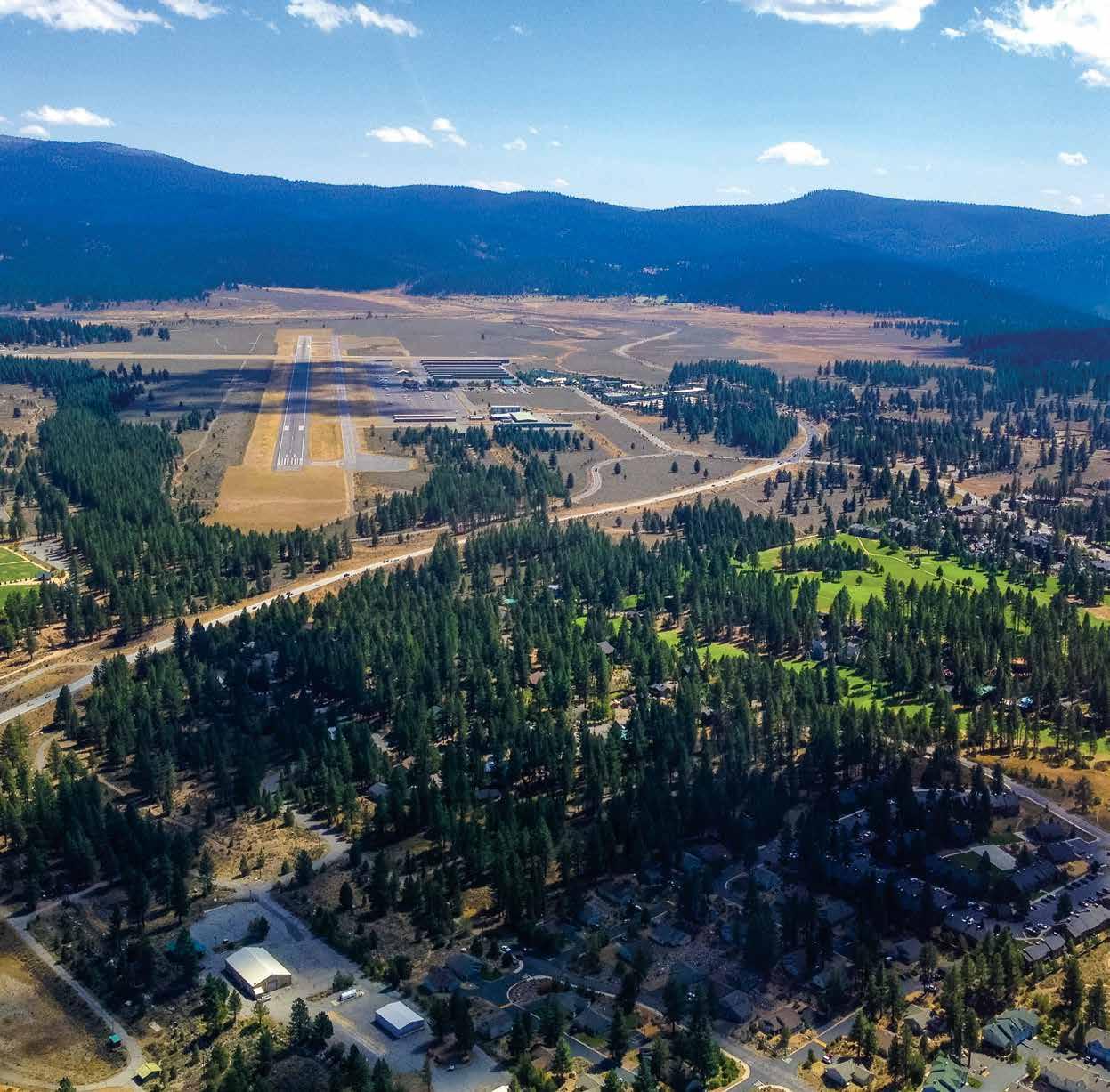
We live in a special place. As a deeply committed community partner, the Truckee Tahoe Airport District cares about our environment and we work diligently to minimize the airport’s impact on the region. From new ADS-B technology, to using electric vehicles on the airfield, and preserving more than 1,600 acres of open space land, the District will continue to seek the most sustainable way of operating.

Green Initiatives


